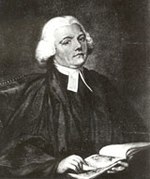"Three Around Farnham" is the title Raymond Williams gave the 11th chapter of his classic The Country and the City (1973), a survey the changing attitudes toward country and city in English Literature.
 |
| Parson Gilbert White |
| William Cobbett |
Read Cobbett's Rural Rides (1830) and look in vain for the country walks of Pride and Prejudice (1813).
However, the other two knew White's book well, and must have recognized some of what he saw -- White was was a pioneer naturalist / ornithologist. Parson White's The Natural History and Antiquities of Selborne,* or just The Natural History of Selborne (1789).
| Cobbett's Rides |
While White remains at least a sidebar in most English literature studies that cover the 18th and early 19th century writers now, it was different in the days of Austen and Cobbett.. Austen was a precocious fourteen and living 17 miles away in Steventon the year's White's book was published. Her brother wrote a poem about the book. On August 31st 1811, when Jane was 36, she dined with White's niece (Rebecca Parker Terry) at Hill House in Alton.
Cobbett, the pioneering social and economic critic of the conditions imposed upon the rural laborer by those who live in the many lovely homes that populate this 30 mile radius around Farnham, refers to White's book in his spoken and written opinions, as can be seen here.
One of Williams's conclusion as to what this means to English literature is expressed by his description of Austen's keen powers of observation, put down in writing within the houses set off from the roads Cobbett rode, observing right on the verge of these same roads that run far off from those houses, the hovels in which the poor attempted to survive rain and cold.
Nevertheless, Williams finds embedded in the familiar texts of her novels, all these social changes, and how the families of all her communities are rising, maintaining, or, as with several figures, as is clearly described in Sense and Sensibility, Pride and Prejudice, Emma, Mansfield Park, and Persuasion, falling. Those whose fall is staved off, are those whose younger sons find other economic security away from the entailed estates, often in the Church (much like Gilbert White himself), and even the great estates themselves such as Darcy's -- are sustained by other means than the land itself, whether from plantations in the West Indies as with Mansfield Park, or as hand wavium explained in Emma, whose fortune of 30,000 pounds comes "from other sources,"** not her father's small estate itself.
I'd argue further. while Austen tends to be assumed to be always looking inward, and at personal relationships, the relationships themselves are created even, by the social changes that are coming with this consolidation of the Industrial Revolution and imperial power.
------------------------------
* Can be found on Gutenberg, here.
** So somewhere -- and not so long ago in reality -- lands granted by Henry's VIII team in the Dissolution, a fortune gained from piracy and privateering in Elizabeth's time, or lands achieved during the Commonwealth, or, closer to Emma's era, from manufacture, slavery, or other not so respectable means that about which surely Emma, Tory snob of snobs, would prefer us not to speculate.

No comments:
Post a Comment